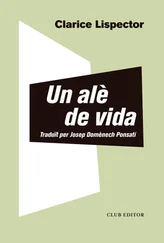As for the way in which I roll my r’s, as if I were speaking French or some other foreign language, this is simply because of a speech defect. A defect which I have never succeeded in correcting. A defect which my good friend Dr Pedro Bloch tells me can be overcome. He has offered to help me but I am lazy and I know perfectly well I would never do the exercises once I was on my own. And besides my rolled r’s are not doing anyone any harm. So that should clear up yet another mystery.
Much more difficult to explain, however, is the path my life has taken. If my family had emigrated to the United States, would I still have become a novelist, that is to say, a novelist writing in English? In all probability I would have married an American and had American children. And my life would have been completely different. I wonder what I might have written about? Which political party I would have supported? What sort of friends I would have cultivated? There is a real mystery.
It could scarcely be called singing, in so far as singing means using one’s voice musically. It was scarcely vocal, in so far as the voice tends to utter words. Flamenco singing precedes utterance, it is human breathing. Sometimes, the odd word escaped, revealing how that mute singing was achieved. It was all about life, love and death. Those three unspoken words were interrupted by laments and modulations. Modulations of breath, that initial vocal phase which captures the suffering in that opening lament and also the joy in that first outcry of sorrow. And pain. And then another piercing cry, this time of happiness at the outburst of that sorrow. The audience sit huddled round the dancers, looking swarthy and unwashed. After a lengthy modulation which dies away with a sigh, the audience, sounding as exhausted as the singer, murmurs an olé , an amen, a dying ember.
But there is also that impatient song which the voice alone does not express: then the nervous, insistent tapping of feet intervenes, the olé which continually interrupts the song is no longer a response; it is incitement, it is the black bull. The singer, almost clenching his teeth, gives voice to the fanaticism of his race, but the audience demands more and more, until that final spasm is achieved: this is Spain.
I could also hear the song that was absent. It consists of silence interrupted by cries from the audience. Within that circle of silence, a short, gaunt, swarthy little man, with inner fire, hands on hips and head thrown back, hammers out the incessant rhythm of that absent song with the heels of his shoes. This is not music. Not even dance. Zapateado * predates the choreography of dancing — it is the body manifesting itself and manifesting us, feet communicating to a pitch of fury in a language which Spain understands.
The audience intensifies its wrath within its very silence. From time to time, you could hear the hoarse taunts of a gypsy, all charcoal and red tatters, in whom hunger has turned to passion and cruelty. It was not a spectacle, for there were no spectators: everyone present played as important a role as the dancer who was tapping his feet in silence. Becoming more and more exhausted, they can communicate for hours through this language which, were it ever to have possessed words, must have gradually lost them throughout the centuries — until the oral tradition came to be transmitted from father to son like the impetus of blood.
I watched two flamenco dancers partner each other. I have never witnessed any other dance in which the rivalry between a man and a woman becomes so naked. The conflict between them is so open that their wiles are of no importance: at certain moments the woman becomes almost masculine, and the man looks at her in amazement. If the Moor on Spanish soil is Moorish, his female counterpart has lost any languor she ever possessed when confronted with Basque severity. The Moorish woman in Spain is as proud as a peacock until love transforms her into a maja .*
Conquest is arduous in flamenco dancing. While the male dancer speaks with insistent feet, his partner pursues the aura of her own body with her hands outspread like two fans: in this way she magnetizes herself, and prepares to become tangible and at the same time intangible. But just when you least expect it, she puts forward one foot and taps out three beats with her heel. The male dancer shudders before this crude gesture, he recoils and freezes. There is the silence of dance. Little by little, the man raises his arms once more, and cautiously — out of fear rather than modesty — attempts with splayed hands to shadow his partner’s proud head. He circles her several times and at certain moments almost turns his back to her, thus exposing himself to the danger of being stabbed. And if he has avoided being stabbed, he owes his escape to his partner’s unexpected recognition of his bravado: this then is her man. She stamps her feet, her head held high, with the first cry of love: at last she has found her companion and enemy. The two withdraw bristling with pride. They have acknowledged each other. They are in love.
The dance itself now begins. The man is dark-skinned, lithe and defiant. She is severe and dangerous. Her hair has been drawn back, she is proud of her severity. This dance is so vital that it is hard to believe life will continue once the dance has ended: this man and woman must die. Other dances express nostalgia for their courage. But this dance is courage. Other dances are joyful. But the joy of this dance is solemn. Or missing. What matters here is the mortal triumph of living. The two dancers neither smile nor forgive. But do they understand each other? They have never thought of understanding each other. They have each brought themselves as their banner. And whoever is vanquished — in this dance both are vanquished — will not weaken in submission. Those Spanish eyes will remain dry with love and wrath. Whoever is vanquished — and both of them will be vanquished — will serve wine to the other like a slave. Even though that wine may prove fatal once jealous passion finally explodes. The partner who survives will feel revenged. But condemned to eternal solitude. For this woman alone was his enemy, this man alone was her enemy, and they chose each other for the dance.
BECAUSE THEY WERE NOT DISTRACTED
They felt slightly inebriated as they walked together. They felt that happiness which comes when your throat is dry and you discover to your surprise that you have your mouth open. They inhaled the air ahead of them and just to have this thirst was almost satisfying. They walked through street after street, conversing and laughing; they conversed and laughed to give substance and weight to this lightheadedness which was the happiness of their thirst. Because of the traffic and crowds, they sometimes touched, and as they touched — thirst is grace, but those waters a secret beauty — as they touched the brilliance of those waters shone, their throats becoming even drier with wonder. How they marvelled at being together!
Until everything transformed itself into denial. Everything transformed itself into denial when they craved their own happiness. Then the great dance of errors commenced. The ritual of mistaken words. He searched without seeing; she failed to see that he had not seen, she who was nevertheless present. He who was nevertheless present. Everything went wrong, and there was dust everywhere on the streets, and the more they wandered, the more bitterly they pursued their goal, unsmiling. All this simply because they had been attentive, simply because they were no longer sufficiently distracted. Simply because they had suddenly become demanding and stubborn, and wanted to possess what was already theirs. All this because they wanted to give something a name; because they wanted to exist, they who already existed. They were then to learn that unless one is distracted, the telephone does not ring; that it is necessary to be out for that letter to arrive, and that when the telephone finally does ring, the wasteland of waiting has already disconnected the wires. All this, all this, because they were no longer distracted.
Читать дальше












